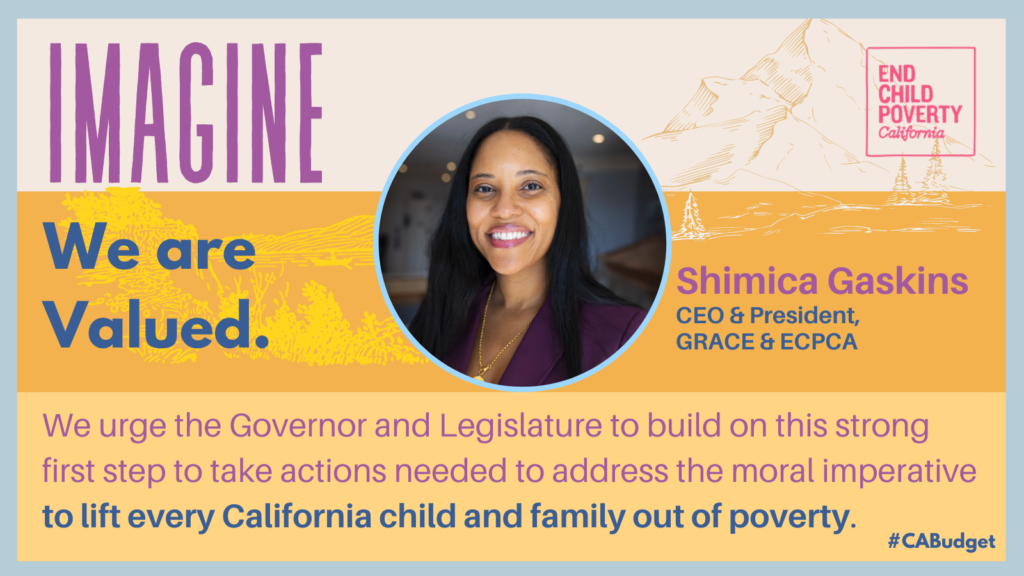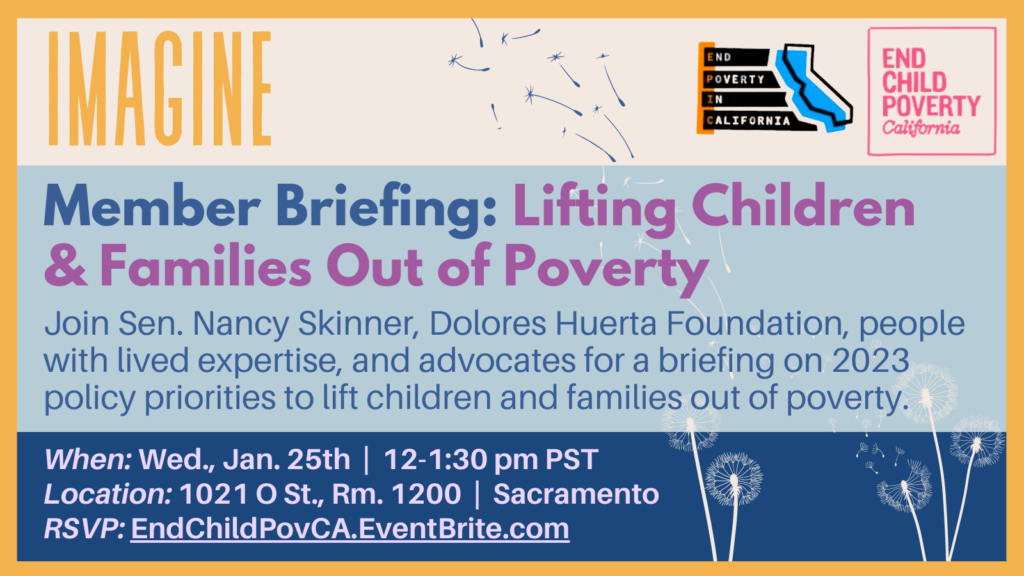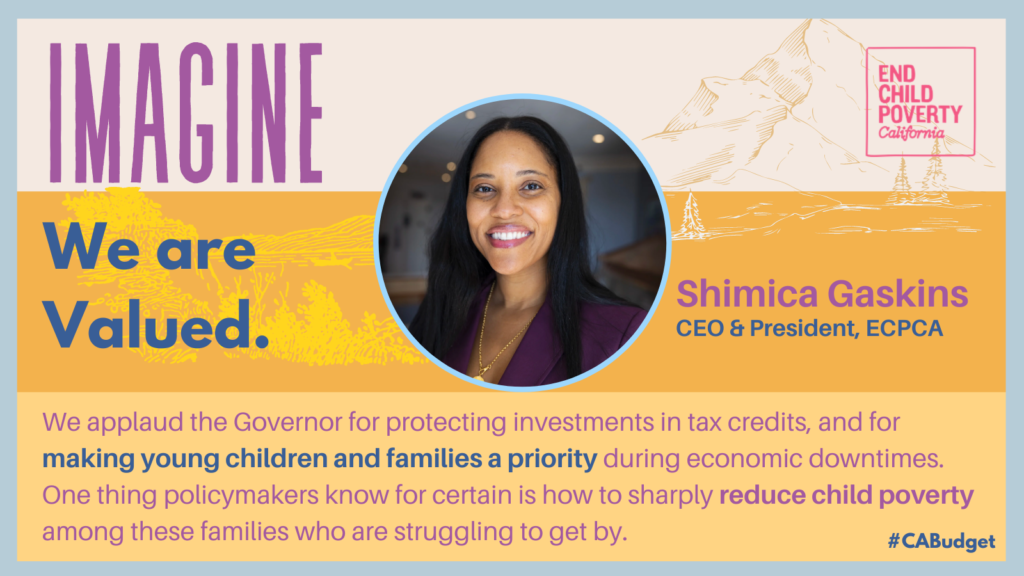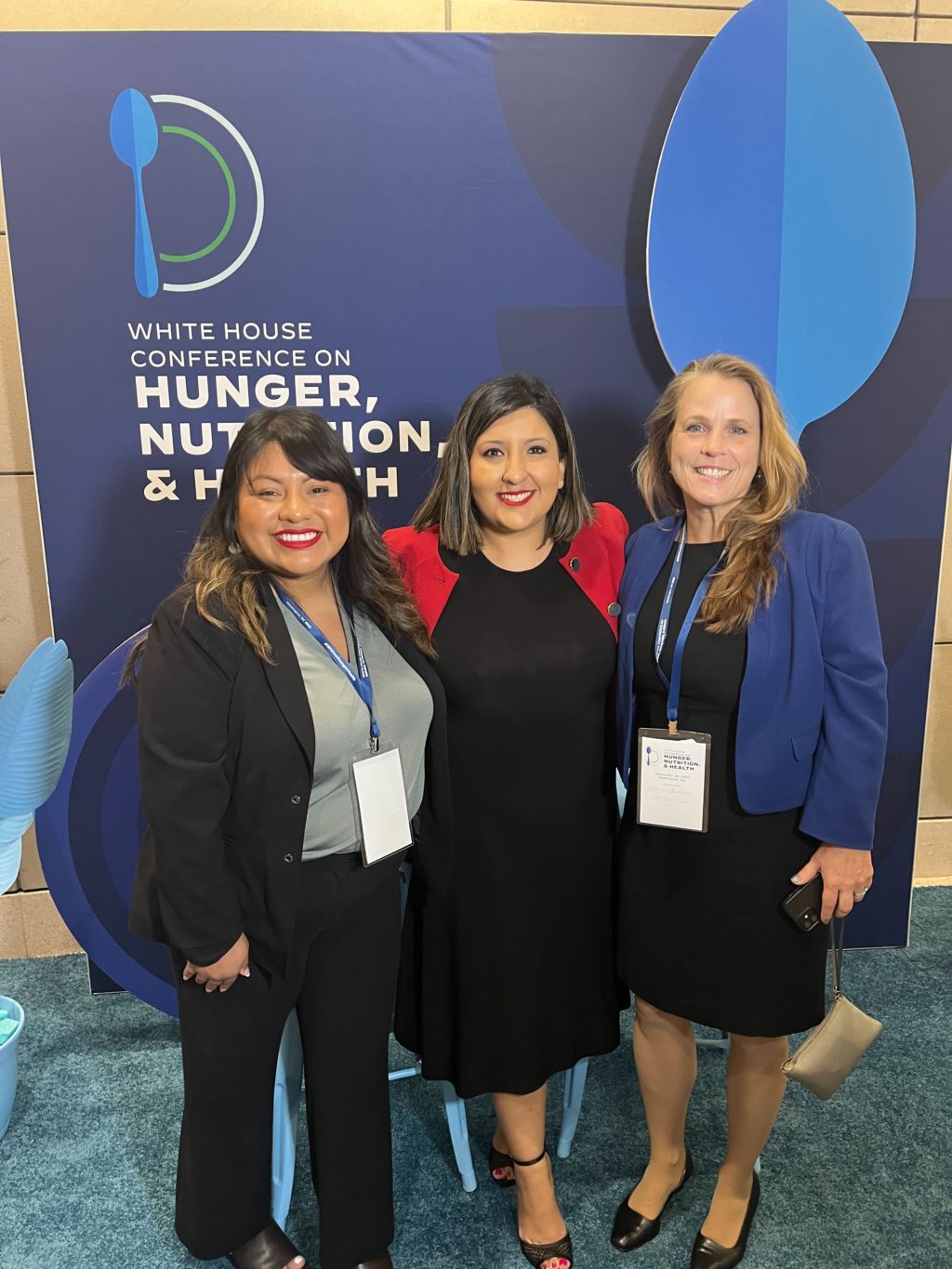What Does California Value?
The first in a planned monthly column from GRACE & ECPCA’s President & CEO, Shimica Gaskins
June 7, 2024
During tough times, families have choices to make. Two big questions loom: where might we cut back, and what can we do to get more income? Importantly, they ask those questions through the lens of what they value.
In the midst of California’s budget season, the way the state raises and spends money naturally draws comparisons to household budgets and the choices families face. Unfortunately, how those questions are answered in our state budget don’t always reflect our highest values.
For families, the “values” lens that always rises to the top is about the next generation. Any necessary belt-tightening avoids cutting off opportunities for their children. They know that all their hard work doesn’t mean much if their kids don’t have what they need. So they prioritize, for them.
Initial plans to address the state’s budget shortfalls missed the mark in a values-forward approach. In fact, the Governor’s recent plan would push more Californians into hunger and poverty by stripping vital supports away from families, foster youth, fragile seniors, and people with disabilities. Deeply troubling, these cuts would disproportionately impact Black and Brown communities and immigrants.
The successes of these programs are what Joy Perrin, a California mom of two precious kids, wrote about in the Sacramento Bee last month. She shared how the CalWORKs Family Stabilization Program—a program that’s been on the chopping block—was the key support that led to getting housed, attaining her degree, and providing for her family. Her story reminds us that it’s reckless to try to solve a short-term budget problem by abandoning families in situations it will take a generation to climb out of.
For months, the End Child Poverty California Coalition has been imploring the administration and legislature to lead with California’s values. We have pushed for alternatives to cutting programs that are life sustaining for our most vulnerable children and families. The problem with only trying to cut your way out of budget issues is that cuts leave wounds with lasting and devastating impacts.
But what we choose to spend money on is only one of the key questions. The stubborn refusal to address revenue is simply not an option that struggling families have, so why should the government? With the 5th largest economy in the world that’s still benefiting wealthy corporations and the top sliver of our state, it’s foolhardy and shameful to not even ask how we enlarge the pie, rather than just cutting out chunks of it.
This past week the California Legislature unveiled its proposal, which thankfully prevents the deepest cuts while raising some new revenue. It’s a strong foundation, but still misses opportunities for bolder reforms to advance a more equitable California that lifts all children and families out of poverty.
We were in Sacramento over the past few weeks with hundreds of impacted community members and workers, and armed with emails from 765 parents experiencing poverty telling their stories—not just about the real choices they face, but also how critical programs make all the difference to their families. These Californians uniquely understand tough choices, but they also know how to hold tight to what they value—their kids and their futures—and are willing to do what it takes to set them up for success. GRACE and our coalition partners will continue to remind our elected officials to follow their lead.




